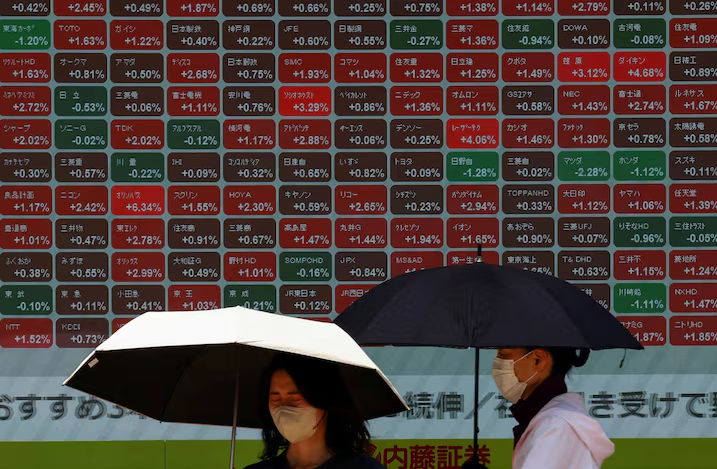SYDNEY: Asian shares fell on Friday after the U.S. slapped dozens of trading partners with steep tariffs, while investors anxiously await U.S. jobs data that could make or break the case for a Fed rate cut next month.
Late on Thursday, President Donald Trump signed an executive order imposing tariffs ranging from 10% to 41% on U.S. imports from dozens of countries and foreign locations. Rates were set at 25% for India’s U.S.-bound exports, 20% for Taiwan’s, 19% for Thailand’s and 15% for South Korea’s.
He also increased duties on Canadian goods to 35% from 25% for all products not covered by the U.S.-Mexico-Canada trade agreement, but gave Mexico a 90-day reprieve from higher tariffs to negotiate a broader trade deal.
Taiwan’s President Lai Ching-te said the rate is “temporary” and is expected to be reduced further once a deal is reached.
“At this point, the reaction in markets has been modest, and I think part of the reason for that is the recent trade deals with the EU, Japan, and South Korea have certainly helped to cushion the impact,” said Tony Sycamore, analyst at IG.
“The market now, I think, has probably taken the view that these trade tariff levels can be renegotiated, can be walked lower over the course of time.”
MSCI’s broadest index of Asia-Pacific shares outside Japan fell 0.7%, bringing the total loss this week to 1.8%. South Korea’s KOSPI plunged 3% while Taiwanese shares fell 0.9%.
Japan’s Nikkei dropped 0.4%. Chinese blue chips were flat and Hong Kong’s Hang Seng index eked out a small gain of 0.2%.


Comments are closed.